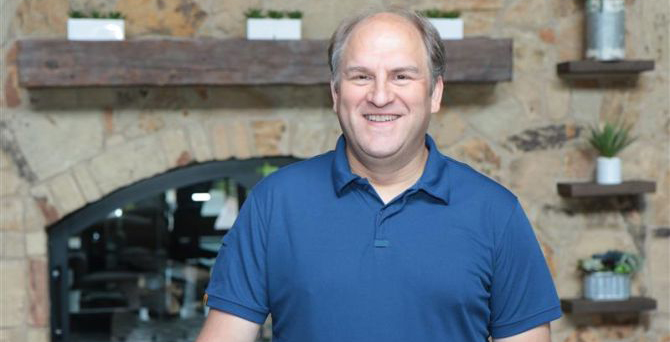After denying three similar requests in recent years, the U.S. Supreme Court on Friday agreed to hear a case that challenges a 1977 court ruling defining what constitutes an “undue hardship” for an employer faced with a religious accommodation request.
The case, Groff v. DeJoy, involves a postal worker’s claim that the U.S. Postal Service discriminated against his religious practice by requiring him to work on Sundays delivering packages for Amazon.
Currently, federal law prohibits employers from firing workers for practicing their religion unless the employer can prove the worker’s religious practice cannot “reasonably” be accommodated without “undue hardship.”
That rule came out of the 1977 Supreme Court case Trans World Airlines v. Hardison, which said the “undue hardship” standard is met whenever accommodating the employee would require more than a trivial or minimal cost.
Gerald Groff worked as an auxiliary postal carrier in Lancaster, Pa., from 2012 to 2019. He was a noncareer employee whose job was to fill in for other workers, including on weekends and holidays.
At first, he was not asked to work Sundays. But in 2015, that changed when the postal service began requiring Amazon packages be delivered on Sundays. Groff asked for a religious accommodation not to work on Sundays, and his managers arranged for other employees to work on Sundays instead of him. That lasted until July 2018, when it became harder to find replacements and Groff was told he faced disciplinary actions if he did not report to work on Sundays.
He quit the job and then sued the postal service. Ultimately, the U.S. Court of Appeals for the 3rd Circuit agreed with a federal judge and ruled USPS would suffer an undue hardship if it were required to accommodate Groff’s desire not to work Sundays. His absence required coworkers to cover his shifts or deliver more mail.
Groff then appealed that ruling to the high court, which has agreed to hear the case later this spring.
His case hinges on Title VII of the Civil Rights Act, which prohibits workplace discrimination of various forms, including based on religion. Groff and his attorneys want the court to make it easier for employees to bring religious claims under that act. They believe the court’s ruling in Trans World Airlines v. Hardison is not favorable enough to employees and allows religious needs to be given short shrift by employers.
Much of the complaint has to do with the court’s earlier interpretation of “undue hardship,” claiming the court had “gutted” the original meaning of the statute and more recently always sides with employers regardless of how serious or trivial the accommodation may be.
Groff is represented by First Liberty Institute, a conservative legal advocacy group behind many of the First Amendment cases challenging federal and state governments in recent years. The same firm represented Coach Joseph Kennedy in his Supreme Court case against a Washington state high school that prohibited him from leading prayers at the 50-yard line after games.
“It is unlawful for employers to discriminate against employees on the basis of religion,” said Kelly Shackelford, First Liberty president. “It’s time for the Supreme Court to reconsider a decades old case that favors corporations and the government over the religious rights of employees.”
Randall Wenger of the Independence Law Center added: “Observing the Sabbath day is critical to many faiths — a day ordained by God. No one should be forced to violate the Sabbath to hold a job.”
With the demise of so-called Blue Laws that once upon a time kept most businesses closed on Sundays — along with an increasingly secular culture unfazed by traditional Sunday worship schedules — most businesses now open on Sundays. And most Americans expect to access goods and services — including package delivery — every day.
Groff’s case pits traditional Christian concepts of sabbath against the cultural demands of commerce.
Thus, Groff’s case pits traditional Christian concepts of sabbath against the cultural demands of commerce. A victory for the former postal employee would have ramifications for employees of other faiths, such as Jews who may not want to work from sundown Friday through sundown Saturday or Seventh-day Adventists who do not want to work Saturdays, their sabbath.
Could a restaurant employee, for example, refuse to work on Sundays feeding after-church diners because of a religious conviction about the sabbath as a day of rest? And how much of a hardship would the restaurant owner have to face in order to be justified in requiring the employee to serve fellow churchgoers lunch on Sundays?
According to a local newspaper’s account of Groff’s case: “At times, Holtwood’s postmaster had to deliver mail on Sundays and the postmaster testified during proceedings in the case that other ‘carriers were being forced to cover (Groff’s) shifts and give up their family time, their ability to attend church services if they would have liked to,’ and these additional demands ‘created a tense atmosphere’ with other carriers, according to the appeals court’s opinion.”
Three times in recent years the high court has been asked to consider similar cases challenging the Trans World Airlines ruling, and three times it has declined to do so, even though three conservative justices — Clarence Thomas, Samuel Alito and Neil Gorsuch — have signaled their desire to accept the cases.
With a socially conservative supermajority now on the court, the landscape has changed.
Related articles:
At the Supreme Court: The First Amendment on the 50-yard line | Opinion by Charles Haynes
There’s more to the praying coach story than reported, his attorney and publicist insist

